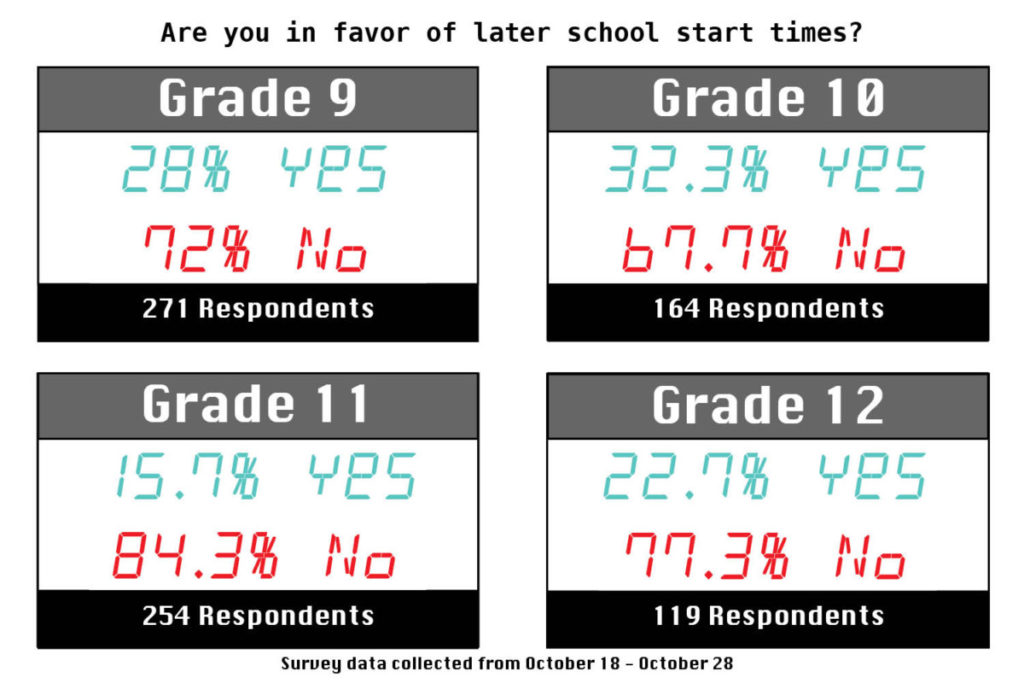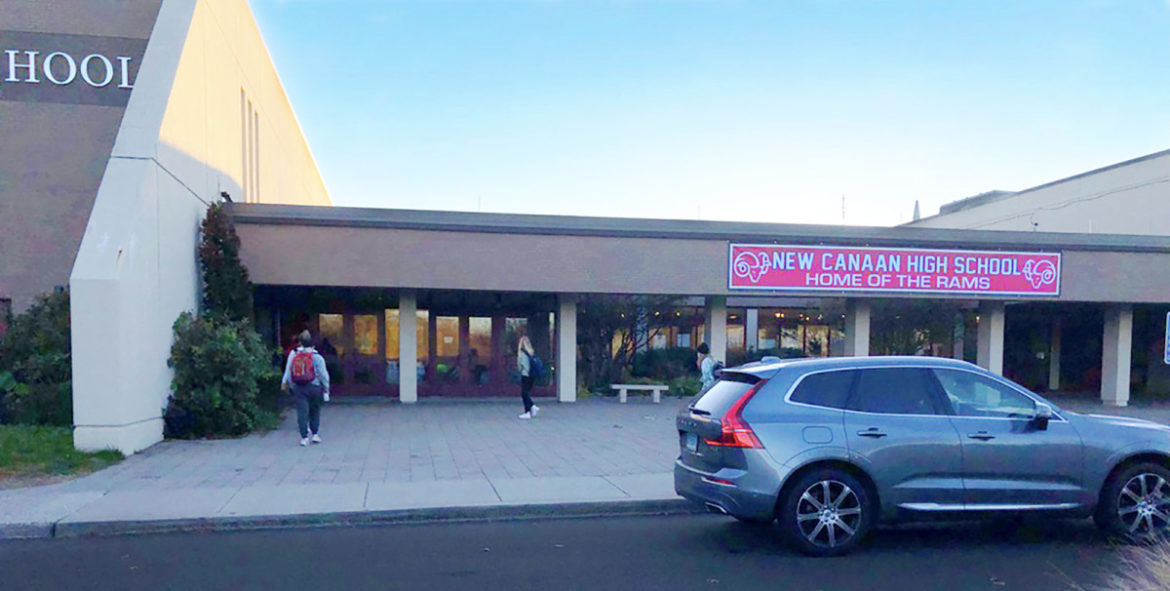Annika Khurana, News Editor
@akhuranacourant
Since 2017, the Board of Education has been discussing changing the school start times so that students in the upper divisions can go to school later in the morning. Plans were approved in early 2020, however, COVID-19 has caused their enforcement to be delayed.
Since then, the implementation of later school start times has been moved to the fall of 2022, with all three elementary schools starting at 8:00 am, grades five and six starting 9:15 am and grades seven through twelve starting at 8:30 am.
Superintendent of Schools, Bryan Luizzi, met with groups of students and parents prior to COVID-19 to discuss the implementation of later school start times. “The fact that COVID-19 resurged in the late summer and fall meant that we haven’t had enough time to put the concentrated focus on school start times that we need to make sure we do it correctly for everybody,” he said.
“We also had some challenges this year with driver shortages across the state and the production of buses. There were enough things that were a little questionable so we decided to wait until the fall of 2022 to make sure we can do it right,” he added.
A common worry across the student body is after-school activities being pushed to later in the day. Assistant Principal Ari Rothman addressed these concerns, understanding that if activities start later, they will finish later. “We have a sizable number of kids involved in athletics and also theatre, for instance. If you start that later, that cuts into the time a kid gets home, does their homework, and so on and so forth,” Mr. Rothman said.
“People should use more time during the day as much as possible to get their work done,” he added. Mr. Rothman believes that there would need to be a definite cut-off for activities to end as to not cut into students’ evening time. “If practice, or a game, or theatre rehearsal is two hours, then you’re talking 3 to 5, or 3:30 to 5:30,” he said. “If it runs longer, then that’s an issue. All of the different programs have to make it work on behalf of the kids.”
The Courant sent out a survey to the student body, with responses being collected from October 18th to October 28th. A total of 808 students responded across all grade levels with 76 percent of respondents not in favor of later school start times. When asked about the results, many students agreed with the data presented.

Samantha Haley, a freshman on the swim team, already has morning practices on two days of the week in addition to the afternoon. “For sports, if the start times get moved back, then [practices]might be pushed to the morning,” she said. “We’ll get even less sleep and less time to do our homework too.”
Sophomore Doster Crowell, a hockey player, feels he will deal with a similar issue. “For hockey, it’s a matter of ice time,” he said. “If school is pushed back, we’ll have more morning skates, where we have to wake up at 5:00 am and we’re not going to get as much sleep.” With many sports team practices potentially moving to the morning before school, this would defeat the purpose of starting later.
Dr. Luizzi, however, does not anticipate activities that are already in the afternoon to shift to the mornings. “There are a couple [activities]that are in the morning already, like hockey, swimming, and rowing,” he said. “Based on availability of space, these would probably stay in the mornings, but other extracurricular activities would be in the afternoons.”
According to Dr. Luizzi, in terms of getting more sleep, research and observations of other districts that have made the switch show that high school students do get more hours of sleep per week, allowing them to be healthier, concentrate better and overall feel better.
“It can be something people are nervous about and they may be worried about losing something when going into the change,” he said. “I see it as more of a gain. It’s calmer for [the students]and just improves the quality of their lives all around.”
Sophomore Lauren Eno plays club volleyball where programs already start later in the afternoon as other districts have implemented later school start times. “I think I would be able to get more sleep and I like having more time in the morning because it makes me more productive and relaxed,” she said. “It makes sense because teens’ sleep schedules are adjusted so we go to bed later and wake up later as well.”
Another concern for many is in terms of staff commutes and parents’ work schedules. Sophomore Emma Peloso’s parents both work full time and have to leave early in the morning for their jobs. “Our parents would be impacted as well. My parents work so they can’t stay home until 8:00 and drop me and my brother off to school,” she said.
Dr. Luizzi acknowledges this as a very legitimate concern. “The buildings will certainly be open, people can get dropped off earlier. If they want to go somewhere, whether it’s the library or elsewhere, the building will be open for them to come in,” he said. “We may even talk to the cafeteria to have some breakfast available for everybody.”
Freshman Ethan Tseng voiced concern for staff members who would be in similar positions, especially as parents. “I feel bad for staff members considering that they will have to take more time away from their families,” he said. “They’ll get to school later but that means they’ll also have to stay longer, so they might miss important things like dinner.”
According to Mr. Rothman, a later start changes many things for the staff who commute. “If [start times]were an hour later, it would change everything in terms of how much time it takes to get to work,” he said. “For people with young kids, it changes a lot of things.”
Mr. Rothman also spoke on start times in terms of getting extra help before or after school. “If you come before school versus after school, then [coming before school]defeats the whole purpose of a later start time,” he said.
A coordination of start times across all three elementary schools creates a potential for increased efficiency and productivity among the vast majority of students. “[Changing school start times] really is about putting healthy school start and end times into place for all the students across the district,” Dr. Luizzi said.
Staying positive and being open to collaboration is key when adjusting to any change, whether as big or small as a district-wide shift in school start times. “I would ask everyone to approach it understanding why we’re doing it and with an open mind,” Dr. Luizzi said. “If we approach this together and try to problem solve any issues that come before and after I think that we’ll really be able to do this truly better than anyone.”




